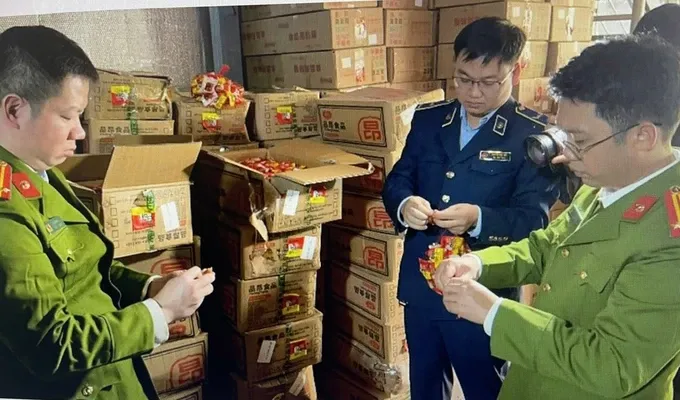
With increasing food demand during Tet, especially for meat, public concern regarding “tainted meat,” antibiotic residues, and growth promoters is prevalent. Director Nguyen Van Long stressed that the Ministry of Agriculture and Rural Development (MARD) has already mandated intensified meat sampling for surveillance to ensure food safety and prevent disease spreading before, during, and after Tet.
In accordance with directives from the Government, the Prime Minister, and the MARD regarding the suppression of food smuggling, the Department of Animal Health, the Department of Livestock Production, and the MARD Inspectorate have also cooperated with relevant functional agencies to block and rigorously prosecute instances of illegal transport and trade of substandard animal products containing antibiotics and prohibited substances.
The Ministry of Public Security has initiated targeted operations to detect and is currently investigating cases of illegal cross-border trade and transport of animals and animal products into Vietnam.
The MARD has recently issued a directive to the people’s committees in southwestern border provinces, urging them to prevent illegal pork imports. Given the absence of veterinary agreements on animal product imports between Vietnam and exporting countries, such shipments are unequivocally illegal. The Department of Animal Health is collaborating with law enforcement to address this issue, with robust inspection and preventative measures being implemented in the near future.

A more important task is to control the quality of legally imported food products. The Animal Health Department has contributed to the introduction of Circular 04, concerning the inspection of imported food shipments. It will continue to review all regulations pertaining to food exports to Vietnam to ensure adherence to World Organisation for Animal Health standards, which mandate compliance with requirements relating to disease control, food safety, and traceability.
As to the concern of the public about the safety of “rapid-growth” livestock products, particularly poultry with short rearing periods, Director Nguyen Van Long shared that both short and long rearing cycles are subject to regulatory oversight, encompassing breeding stock, feed, husbandry practices, and slaughtering processes. Authorities monitor technical parameters, including disease surveillance and checks for prohibited substances. Furthermore, all markets importing Vietnamese livestock products deploy their own inspectors to conduct independent safety assessments.
Therefore, in addition to domestic monitoring by the Vietnamese authorities, there is an independent layer of scrutiny from foreign inspection agencies. With the coordinated oversight of various agencies, including veterinary, livestock, and market management bodies, poultry products such as 45-day-old, or even 35-day-old, commercial chickens remain safe for consumption.
























